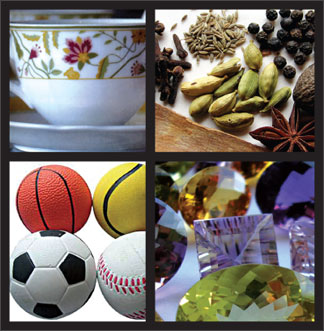APTA to enhance trade flows among member countries
Huge market with a 2.5 billion population:
by Gamini Warushamana
[email protected]
The Asia-Pacific Trade Agreement (APTA) has opened a huge market with
a 2.5 billion population and will increase intra-regional trade flows
among the member countries, said Dr. Dayarathna Silva of the Department
of Commerce.
 He was addressing a seminar organised by the National Chamber of
Commerce on APTA in Colombo last week. He was addressing a seminar organised by the National Chamber of
Commerce on APTA in Colombo last week.
Asia is the fast growing region in the world today. Since China and
India, the two fast growing economies are in the APTA this agreement has
opened a vast opportunity, he said.
Sri Lanka exports coconut products, natural rubber, tea, sesame
seeds, rubber gloves, activated carbon and floor tiles to the member
countries.
In addition to these products, the APTA member countries have offered
concessions under the consolidated national lists for spices, rubber
products, ceramic items, glassware, semi precious stones, gem and
jewellery, stuffed toys, cashew nuts, essential oils, natural graphite,
brooms and brushes, cut flowers, footwear, biscuits, chocolates,
apparel, fresh fruits and juices, wooden furniture, electric lamps,
ornamental fish, fresh/frozen fish and fishery products, Dr. Silva said.
He said that the APTA paves the way for investment promotion and
joint ventures in Sri Lanka, viz manufacture of microwave ovens, fans,
computers, electronic/video games, telecommunication apparatus,
motor-cycles, marble, granite, copper items, aluminium products,
telephone sets, garments and footwear utilising the cumulative rules of
origin and export these products to the member countries.
The rules of origin have been relaxed and the domestic value addition
has been revised from 50% to 45% and this will help to increase range of
products to the member countries.
APTA is the successor of the Bangkok Agreement, one of the earliest
preferential trade agreements in Asia.
The Bangkok Agreement was established in 1975 and Bangladesh,
China,India, Laos, Republic of Korea and Sri Lanka are the members. It
was renamed as APTA in November 2005 and it came into force on September
1, 2006.
The Bangkok Agreement concluded three rounds of negotiations.
In the first and the second round member countries negotiated about a
fixed concession rate. In the third round they negotiated on Margin of
Preference (MOP) on tariffs in respect of agreed items taking into
account the year 2001 as the base year.
After the third round the member countries agreed to a single list of
concessions.
The list covers 4,857 tariff lines including special concessions (587
tariff lines) offered to the least developed countries.
Sri Lanka’s consolidated national list of concessions (general)
covers 427 tariff lines while the special list covers 72 tariff lines. |
